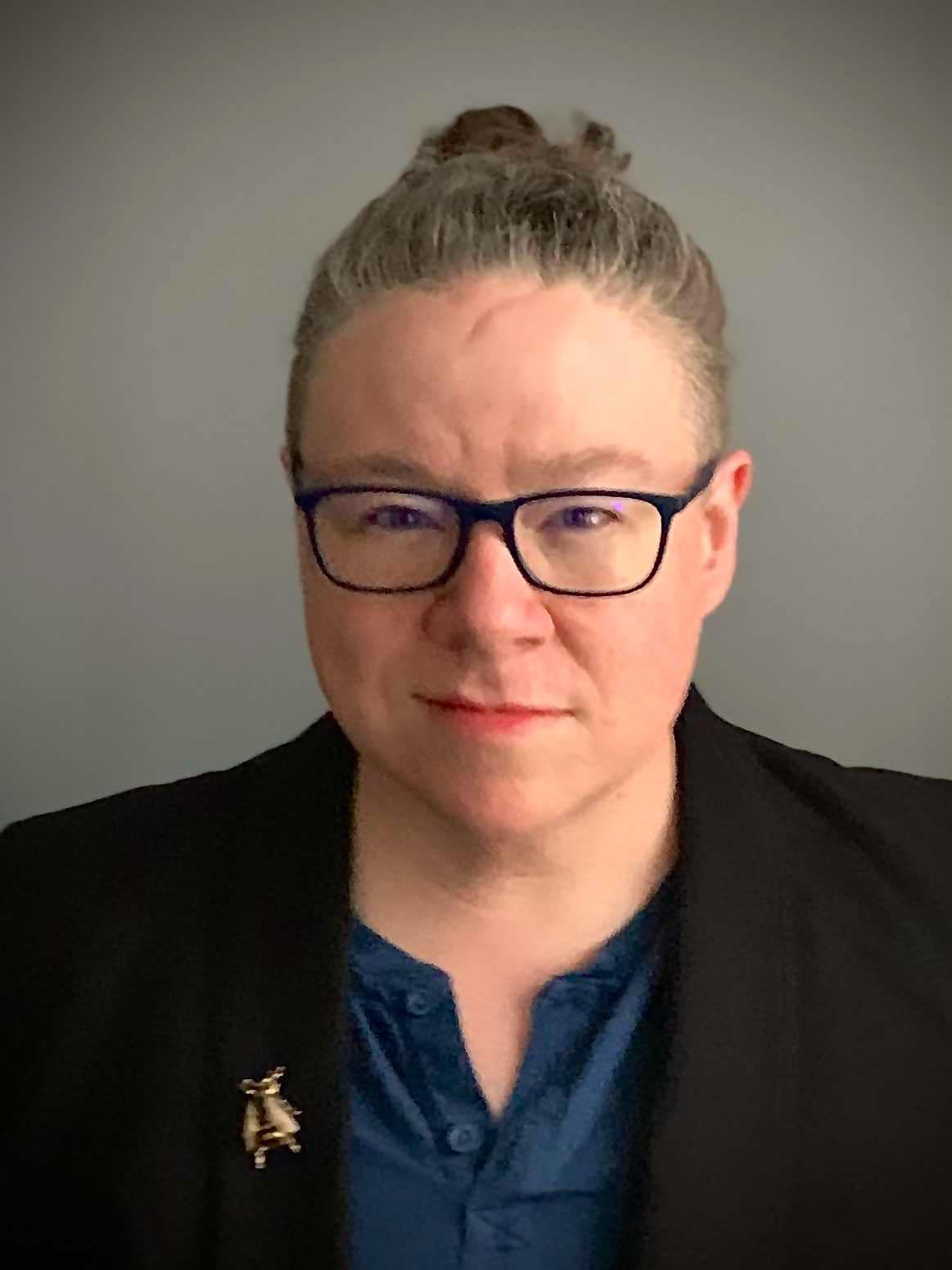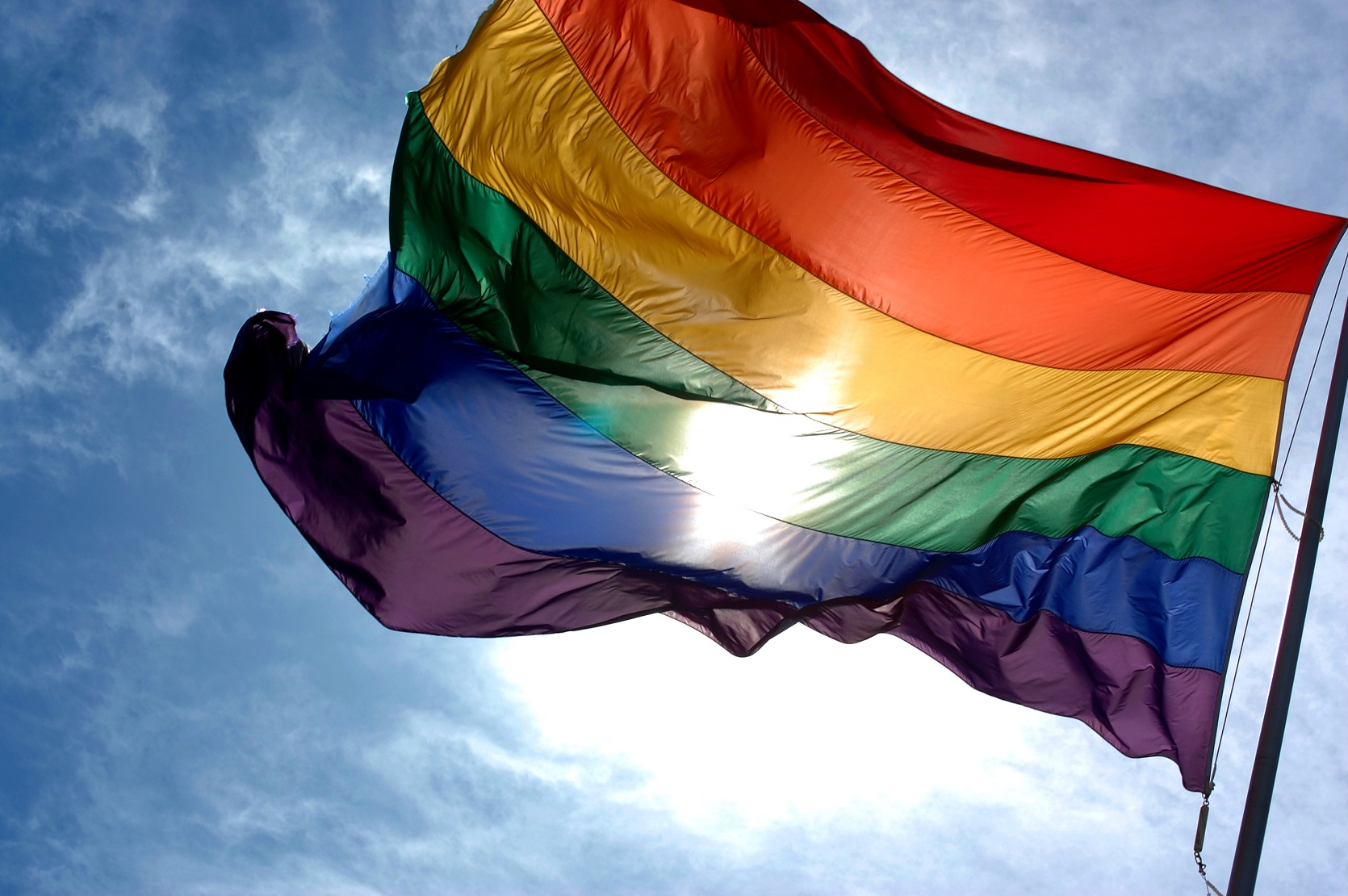Dear Pride Family,
We continue our pass the mic series with a perspective from Intersex and queer-identified scientist, educator, and activist San Diego Pride volunteer Assistant Parade Manager, Alex Thornton (he/him).
Did you know that genital mutilation of infants is still legal in all 50 US states? Intersex Awareness Day is celebrated annually on October 26th in honor of the first public protest in 1996 by intersex people in the US against doctors performing non-consensual genital cutting and clitorectomies on babies. Now, 28 years later, these coercive medical violations still happen routinely and I want to help you become an ally to intersex people.
What is “Intersex”?
As the first openly intersex member of San Diego Pride’s volunteer leadership team, I’m grateful to have been asked to briefly introduce this topic, and I look forward to continuing conversations throughout the year.
Intersex is an umbrella term for 30+ known variations of sex-associated traits falling outside of what many people associate with a binary female or male categorization; they appear as unique expressions of genetic, chemical, and/or physical sex characteristics. (I love this infographic showing the inadequacy of a binary system to define human sex.) Intersex people comprise up to 1.7% of the population—that’s about 24,000 San Diegans—each with their own story.
Intersex people can be any gender identity or sexual orientation, and might not identify as intersex. Shared experiences of harm arising from not adhering to social norms for sex and gender resulted in intersex people being included in the LGBTQIA+ acronym, but misunderstandings often limit meaningful inclusion.
Challenges Faced By Intersex People
According to The UN, when variations in sex traits are detected, intersex babies may be subject to abuses ranging from infanticide to “forced and coercive medical interventions” (i.e., involuntary genital surgeries) to impose binary sex. Ezra Young (he/him), a nationally-recognized civil rights lawyer and constitutional scholar highlights: “In the US, there is no federal law that expressly prohibits surgery on intersex infants. Since 2020, dozens of states have enacted trans healthcare bans, many of which have provisions that affirmatively legalize medically unnecessary genital reconstructive surgery on intersex infants.”
Growing up, intersex people are frequently denied bodily autonomy and access to affirming care or education. Due to “medicalization, pathologization, and medical (mis)treatment of intersex variations,” The Trevor Project reports that 48% of intersex youth seriously considered and 41% attempted suicide in the last year (higher rates than LGBTQ youth who aren’t intersex). The Department of State acknowledges that intersex people “often face discrimination, harmful medical practices, violence, and social stigma solely based on their sex characteristics.” As adults, intersex people face substantially higher barriers to accessing healthcare, employment, and education, and are worse-off socio-economically when compared to peers.
How You Can Help Intersex People
“Intersex people deserve bodily autonomy, joy, and justice—including the opportunity to determine their own futures for themselves,” writes Erika Lorshbough (they/she), Executive Director of interAct, the US’s only intersex-led policy organization. To help people become intersex allies, they are excited to announce that, “This year, interACT is offering an entire #IntersexAwarenessWeek of content, including intersex people’s posts about #IntersexFutures!”
Please check out interAct’s Intersex Awareness Day (October 26) website for resources, including 26 ways to be an ally! I also humbly ask you to join me in requesting that local queer organizations jumpstart their allyship by including intersex people in their mission statements and advocacy.
In Solidarity,
Alex Thornton (he/him)
Intersex and queer-identified scientist, educator, and activist
Volunteer Assistant Parade Manager, San Diego Pride

Alex Thornton (he/him)

Ezra Young (he/him)

Erika Lorshbough (they/she)
